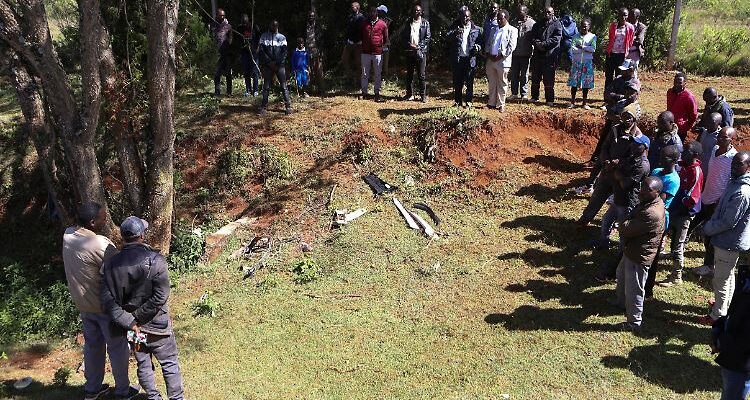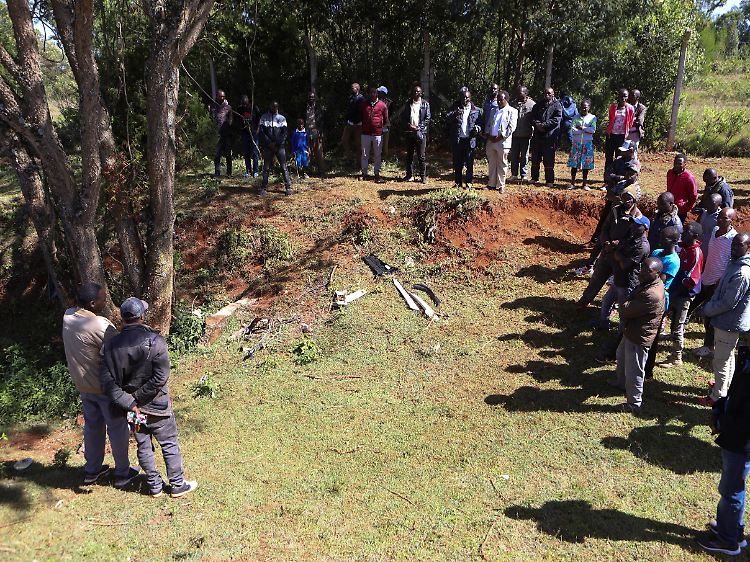On the death of Miracle Runner Kiptum
A sky-striker who was so close to the magical
By Emmanuel Schneider
February 13, 2024, 6:28 a.m
With Kelvin Kiptum, the world of athletics is losing a rising star who still had the big thing ahead of him. Germany’s European champion Hendrik Pfeiffer speaks about the great sadness in Kenya. The 24-year-old Kiptum has shown that the impossible can be possible.
There are news stories that you have to read twice to believe or even begin to understand. Maybe more like three or four times. Just like this Sunday evening, when breaking news suddenly bursts into the cheerful pre-Super Bowl banter: Kelvin Kiptum is dead. Please, what?
And yet it is true: the marathon world record holder was taken from life. At just 24 years old. According to police, he lost control of his car near the Kenyan town of Kaptagat, crashed into a tree and landed in a ditch 60 meters away. The pictures of the accident scene are bad enough. Kiptum and his trainer Gervais Hakizimana, who was sitting next to him, died on the scene. A woman who was sitting in the back seat of the car was taken to a local hospital with serious injuries. On the night of Sunday to Monday, Kenya’s sports minister confirmed the accident. Kelvin Kiptum is dead.
It is a tragic, almost incomprehensible and far too early end for a sports star and, above all, a tragedy for his wife and their two children, his family, friends, Kenya and the sports world.
Something like national mourning fell over the East African country, which is a major running nation. President William Ruto reacted with dismay. “Kiptum was our future,” he wrote at X, an “extraordinary athlete” who had “left an extraordinary mark around the world.” Kenya’s marathon superstar Eliud Kipchoge sent condolences via social media. “I am deeply saddened by the tragic death of the marathon world record holder and rising star.”
Pfeiffer reports the “huge shock”
Germany’s European team champion Hendrik Pfeiffer reports how great the sadness is in Kenya. The 30-year-old is currently training for the spring season in the legendary running town of Iten. “It’s a tragic news that affects people here very much, it’s a very big topic of conversation everywhere, even among non-runners,” he says in an interview with ntv.de/sport.de. In the many training groups, the sympathy for Kiptum’s fate is enormous. The marathon runner’s death was a “huge shock that hit the entire country.” Training colleagues tell Pfeiffer that there will be many mourning and memorial services in the coming days.
The accident also gave Pfeiffer an uneasy feeling because he and his training partners ran a long run on Sunday just a few kilometers from the site of the accident and Kiptum’s hometown. “It’s a sad day in Kenya,” said Pfeiffer.
The story of Kiptum will probably now be continued as a big “what if…” in the sports world. Because the running star was the greatest talent since Kipchoge, who also comes from Kenya. His legitimate successor was the greatest promise of magical times once only dreamed of. “Kelvin Kiptum leaves a huge gap. Precisely because he was the man who was supposed to break the two-hour mark or who was most likely to do so,” says Pfeiffer.
The two-hour sound barrier remains untouched
Just in October, Kiptum ran the fastest time ever on an official track in Chicago. A fabulous world record. Only 35 seconds were missing from the two-hour mark. This two-hour sound barrier is one of the last magical limits and barriers that still exist in sport. Maybe the most magical. Especially because she seemed so unattainable for a long time.
And all the experts agreed. It was only a matter of time before this young man would shatter this magical brand, the last bastion of the impossible. There was almost no doubt about that. Maybe as early as spring. In Rotterdam, Netherlands, Kiptum wanted to go on a record hunt again and hit the asphalt with the next crazy best time. Maybe it wouldn’t have happened until fall or 2025. Yes, what if…
And in the summer of 2024, a duel was scheduled that had the makings of an epic fight for gold. And the potential to electrify the Olympic Village. In Paris, both Kipchoge and Kiptum wanted to run the Olympic marathon. The course and conditions (midsummer, no pacemakers) would have prevented a record rush. It would have been a classic duel, man against man. The old story: Young versus old. Challengers versus defending champions. Who is faster? What if …
Steep climb – to the world record
The climb from Kiptum to the top was gigantic: steep, fast and eye-catching. The Chicago run was only the third official marathon of his career. The previous two in London (2:01:25 hours) and Valencia (2:01:53 hours) already made people sit up and take notice. In his very first marathon in Spain he immediately shot to the top of the world, and in London he immediately scratched the world record – and surprised the running scene. Three of the six fastest marathon runs of all time came from him within a very short time. The running world had never experienced this before.
For a long time, Kiptum trained alone near his Kenyan home in the Rift Valley. He is said to have joined running groups as a child and took part in a half marathon when he was 13. In 2019 he took the step to Europe. For a long time he trained without an official coach.
And of course, anyone who rises to such a gigantic level also produces question marks. This is unavoidable these days. Athletics has seen too many black sheep so far. And nevertheless. As far as we know, Kiptum was not guilty of anything. With the new carbon wonder shoes from his supplier, he had the best possible material. But all of this is useless without the appropriate talent. Miracle runners and miracle shoes, along with the rumored hard training program with up to 300 kilometers of running per week. It was the perfect mix.
Kipchoge paved the way for Kiptum
Kiptum established a sharp tactic that was second to none. The youngster kept putting on a negative split. This means: He ran the second part of the marathon significantly faster than the first. Especially the sections between kilometers 30 and 40. At that point at the latest, he left the hopelessly inferior competition behind and stormed to victory.
And so the changing of the guard at the top of the marathon in 2023 was not only strongly suggested, it had probably already taken place. While Kipchoge was suddenly no longer invincible, his compatriot simply continued to improve. The 39-year-old Kipchoge had dominated the marathon in recent years and paved the way for Kiptum.
It was also Kipchoge who broke the two-hour mark in Vienna in 2019 – under laboratory conditions, including changing pacemakers and artificial slipstreams – he ran a sensational 1:59:40 hours. This run is therefore not a recognized record. It seemed as if this feat was reserved for his successor, Kiptum.
Because the future was still open to the sky-striker, it had only just begun. It’s over far too soon.

